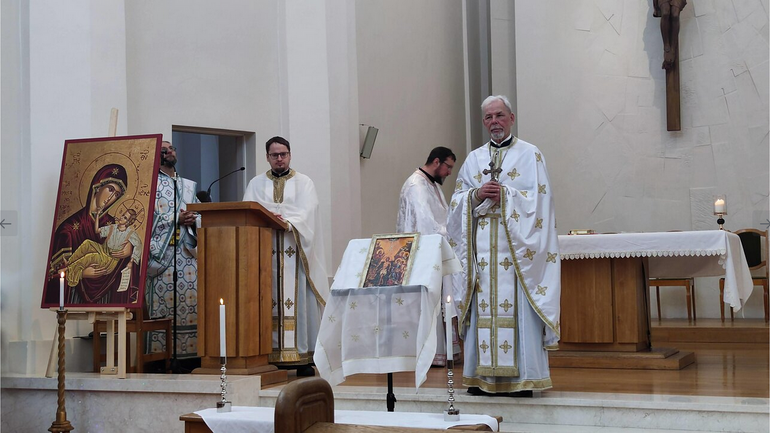In Lithuania, the Exarch of the Constantinople Patriarchate prayed for Ukraine and its defenders

As reported by LRT, according to Father Volodymyr Sielavka, this is a historic event since it has been almost 300 years since the clergy from Constantinople last conducted a service on Lithuanian land.
During the festive service, prayers were said in Ukrainian, Belarusian, Old Church Slavonic, Russian, and Lithuanian languages. In particular, the prayer in the Ukrainian language was for Ukraine, its defenders, and those who had to leave their homes.
As RISU has previously reported, Father Justinus Kiviloo, who arrived in Lithuania from Estonia on Friday, was tasked with finalizing the formation of the church structure of the Constantinople Patriarchate.
"My presence here in Lithuania is important because the people and parishioners here are given the 'freedom of the heart' to pray. As they want from their hearts so that their conscience doesn't torment them about anything. So that they can calmly go to church and not think about anything else but God. And when they disagree with something, they have the opportunity to express their opinion," noted Father Justinus after the service.
"A person has only two paths. One is against their conscience, the other is against the current. And when a person begins to swim against the current, only then will they reach the Source!" he added, wishing everyone a "good path against the current."
Father Justinus expressed hope that he would be able to stay in Lithuania permanently very soon:
"We now need to register the Exarchate. So that everything complies with the laws of the Lithuanian state. And then we can think about where the Exarch will live and how he will organize his work. We, especially on Sundays, act as servants of God. But all the nuances regarding the Exarch's residence will be clarified a little later."
In an interview with the Ukrainian editorial office of LRT.lt, Father Justinus mentioned having Ukrainian roots.
"My surname, Kiviloo, is Estonian. It's not widely known, but my grandfather's surname was Suprunenko. This was my father's father. So I am very closely related to Ukrainians by blood. Is it good or bad? I don't even know; I have lived in Estonia all my life. And I have never felt such a special connection. I wanted to go to Kyiv as a tourist, but I never felt like a Ukrainian. But when the war started, and it might just be natural for a person (February 24 is a national holiday in Estonia, and Estonians celebrate Independence Day), we prayed for Ukraine. For the military, for civilians, and for the country. Not forgetting about the attackers either. So that God forgives and somehow pacifies. What can I say to Ukrainians? Hold on! And, as always, Glory to Ukraine! Glory to the Heroes!









